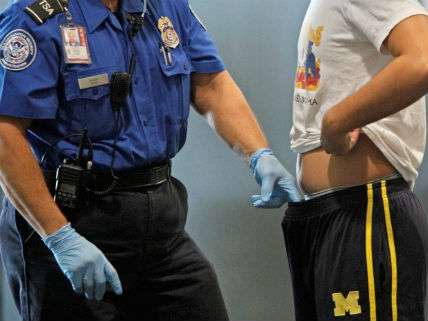Trump, Terrorism, and Freedom: New at Reason
"I tend to err on the side of security, I must tell you."

A month after the September 11, 2001 atrocities, nearly 60 percent of Americans said they trusted the government in Washington to do what is right almost always or most of the time; that was the highest it had been in 40 years. More than 50 percent were very to somewhat worried that they or a family member would be a victim in a terrorist attack. Keying off of these fears, various commentators stepped forward to sagely intone that the "Constitution is not a suicide pact." (I prefer "Give me liberty or give me death.")
Instead of urging Americans to exercise bravery and defend their liberty, our political leaders fanned fears and argued that we must surrender freedoms. The consequences included the creation of the Department of Homeland Security, the proliferation of metal detectors at the entrances of public buildings, the requirement to show government-issued IDs at more and more public venues, the increased militarization of our police forces, tightened travel restrictions to neighboring countries where passports were once not required, and the establishment of a vast program of domestic spying.
How would President Donald Trump react to a significant terrorist attack, especially one motivated by radical jihadist beliefs? It is possible that such a crisis would reveal President Trump as a fierce defender of American constitutional liberties, but the signs all point in a more authoritarian direction.


Show Comments (0)